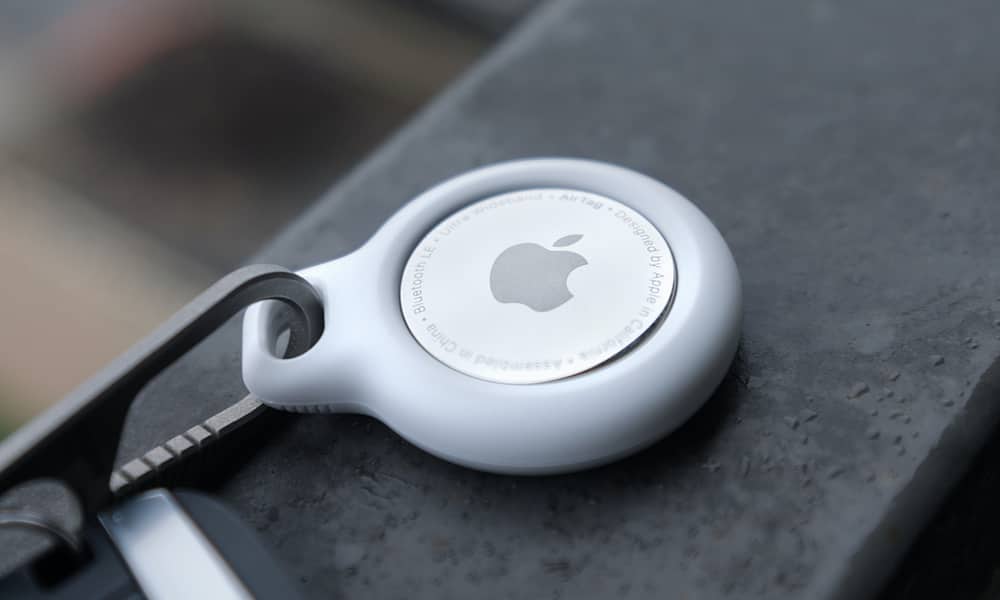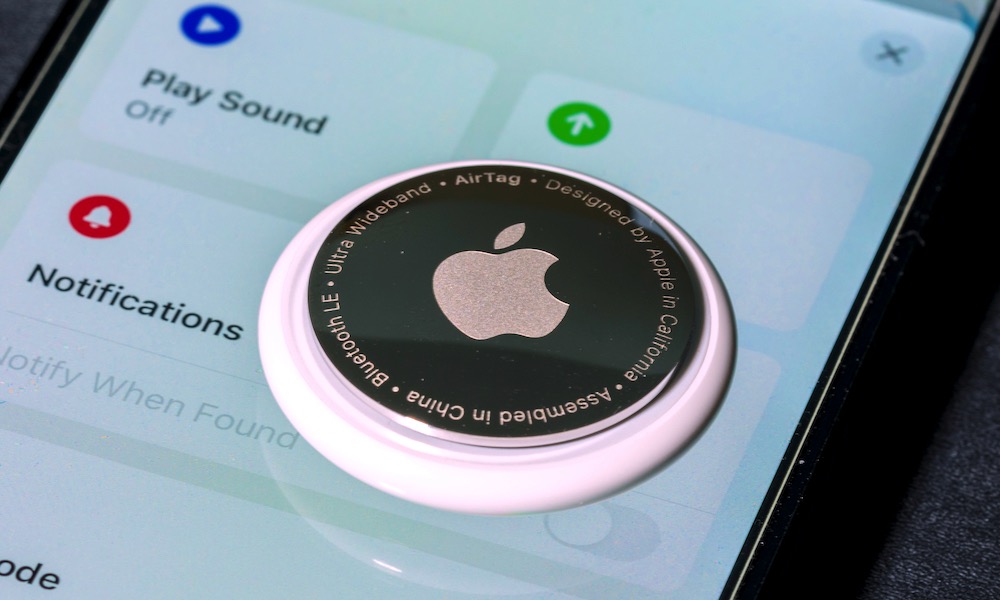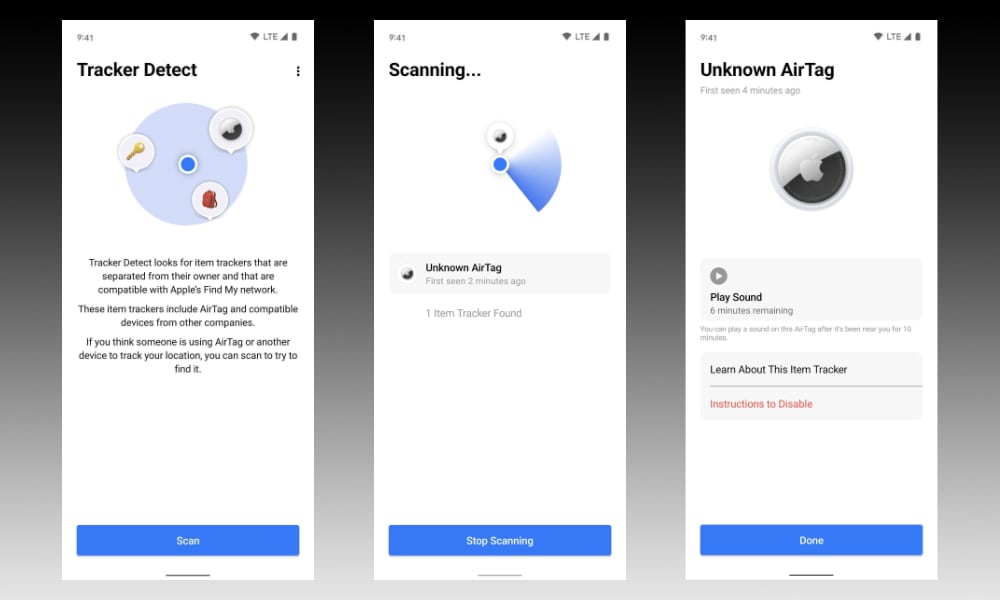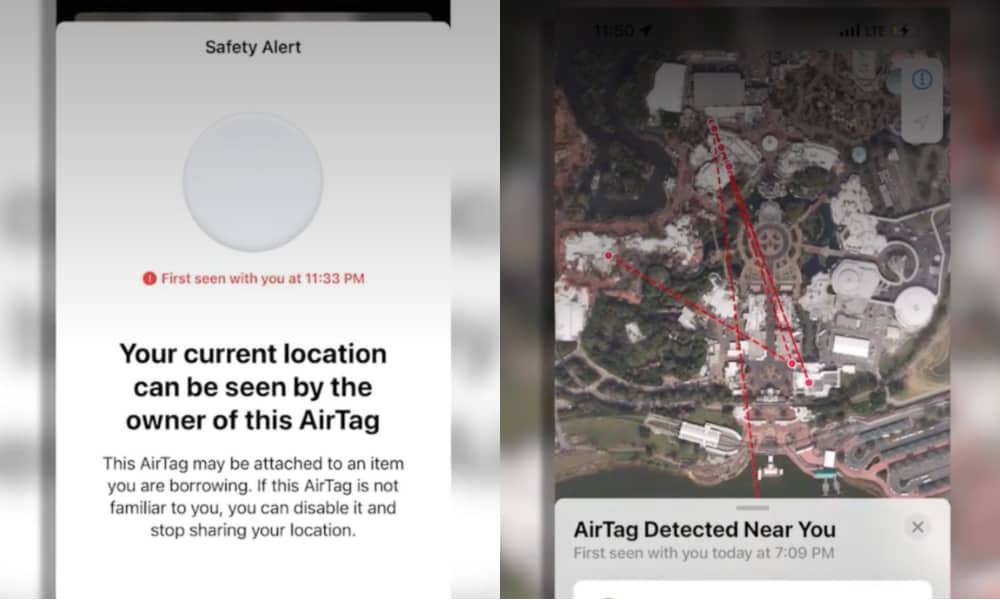Your Android Phone Will Soon Be Able to Alert You to an Unknown AirTag
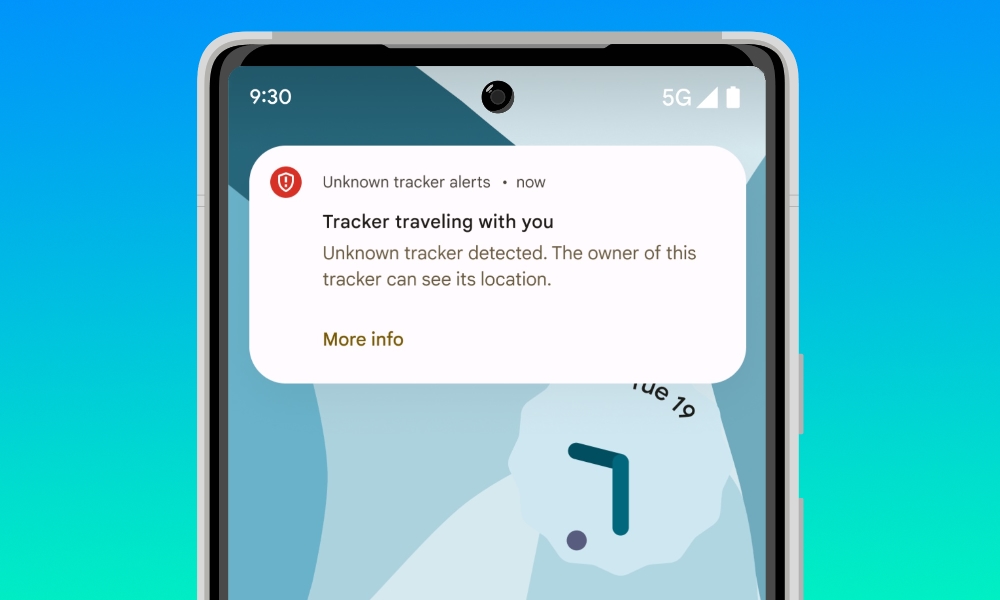 Credit: Google
Credit: Google
Toggle Dark Mode
When Apple unveiled its AirTags two years ago, it opened a Pandora’s box of privacy and safety issues. As advocates for victims of domestic violence pilloried Apple for not doing enough to prevent the inexpensive tags from being used for nefarious purposes, news reports also surfaced suggesting they were at least partially correct.
It’s not that AirTags were the first personal item trackers on the market — not by a long shot. That distinction goes to Tile, which had already been selling a very similar solution for half a decade before AirTags were even a gleam in Apple’s eyes. Tile’s first trackers were released in 2013; despite nearly two years of rumors, Apple’s AirTags didn’t land until 2021.
If anything, Apple should have been commended for adding any kind of personal safety features at all. When they first launched, AirTags would sound an audible alert if they’d been separated from their master’s iPhone for more than three days. Any iPhone or iPad running iOS 14.5 or later would also signal an alert if an unknown and unpaired AirTag was found moving around with it. Tile’s trackers had no such features.
However, those precautions weren’t enough for safety advocates. Thanks to Apple’s marketing machine, AirTags entered the public consciousness in a way that Tile’s trackers hadn’t. This meant more people were likely to get ideas in their heads about using them in ways Apple hadn’t intended, such as planting them on potential stalking victims.
It also didn’t help that Apple’s Find My network was an order of magnitude larger than Tile’s. A lost Tile could only be located if it was within Bluetooth proximity of an iPhone or Android smartphone running the Tile app, and with only 35 million Tile tags sold since 2013 and customers likely to buy more than one each, that wasn’t a very large network of devices that could help find a missing Tile. This made it impractical to try and stalk somebody with a Tile in the first place.
By comparison, Apple’s Find My network marshaled the one-billion-plus iPhones and iPads around the world to participate in the largest crowdsourced locating network in history. Any iPhone or iPad running iOS/iPadOS 14.5 or later that happens to be within 100 feet of an unknown AirTag will automatically, transparently, and securely report its location to Apple’s Find My cloud. As anybody who has used an AirTag can attest, it’s almost eery how easy it is to locate a lost one when you stop and realize that it has no GPS or other tracking hardware built into it.
When you put all this together, concerns about Apple’s AirTags being used for stalking weren’t unfounded, which is probably why Apple implemented some safety precautions in the first place. However, as domestic safety advocates pointed out, the problem was that Apple made these decisions in a vacuum without actually consulting any experts in these subject areas. Among their concerns were that the three-day window was far too long and that Apple’s unknown AirTag warnings didn’t cover the large portion of the population that used Android devices.
Apple quickly responded by releasing a firmware update for the AirTags that reduced the audible alert to around 8 hours. It also tweaked the iPhone notifications to be more effective. In the original implementation, an iPhone often only alerted a person of an unknown AirTag once they had arrived at a place they frequent, such as their home, office, or gym. By then, an alert might be too late as the other party would know where their potential victim lives, works, or hangs out.
Over the past two years, there have been some pretty alarming reports of AirTags being discovered by potential stalking victims, which proves that concerns about the misuse of AirTags are entirely valid. However, these also show that Apple’s safety features are working quite well — at least some of the time.
Google Steps Up to the Plate
While addressing the AirTag safety issue for Android users wasn’t entirely in Apple’s hands, the company did release an Android app on the Play Store to provide a way for Android smartphone users to discover if any unknown AirTags were nearby.
Sadly, there was only so much Apple could do with such an app. Running it in the background would have created a serious drain on battery life, so Apple’s Tracker Detect app was limited to letting folks proactively scan for nearby AirTags. This was useful for those who had reason to believe someone might be trying to stalk them, but it didn’t likely do much for the average person who could find themselves a random target of a crazed stalker — and we’ve seen reports of that happening.
Last spring, a 17-year-old girl discovered someone had planted an AirTag on her at Disney World. She only discovered this because she was carrying an iPhone; had she been an Android user, she may not have known about the AirTag at all, allowing the person who planted it to track her back to the hotel she was staying at. The audible warning feature could have also helped prevent that, but it may not have gone off in time due to the eight-hour-plus time window.
Thankfully, Apple and Google have been hard at work on a cross-platform solution — their second landmark partnership since they joined forces three years ago to create the COVID Exposure Notification System.
Now, it seems Google’s piece of the solution is ready to go. In a blog post today, Google announced that unknown tracker alerts are now rolling out to all smartphones running Android 6.0 and later. While it’s expected to be a staged rollout, it should arrive on every compatible Android device within the next month or so, vastly increasing protections against unwanted tracking with Apple’s AirTags.
Since Android 6.0 “Marshmallow” was released in 2015, this update should encompass the vast majority of Android devices still in use today.
Google’s unknown tracker alerts are built into the core Android operating system, so they work in the background without users needing to install additional apps. They’ll work much like Apple’s iPhone notifications, popping up a high-priority alert if an AirTag is found moving around with you.
As with Apple’s alerts, Android users can tap a notification to learn more about the tracker, see a map of how long and how far it’s traveled with you, and make it play a sound so you can find out where it’s hiding.
At this time, unknown tracker alerts only work with AirTags. However, Google promises to work with other tag manufacturers to expand the protection to other tracking tags as these other companies get on board. In May, Google and Apple jointly submitted a proposed specification to the Internet Engineering Task Force (IETC), inviting companies such as Samsung, Tile, Chipolo, and others to also participate with their trackers.
Google is also adding a manual scan feature similar to Apple’s Tracker Detect app to let you proactively check if any suspicious AirTags are nearby. Once they receive the update, Android users can find this in Settings > Safety & Emergency > Unknown tracker alerts.
This actually puts Android users ahead of iPhone users, which don’t provide any manual scanning features. Apple briefly added this in an early iOS 15.2 beta, but it was pulled before the final release for whatever reason and hasn’t returned since.

